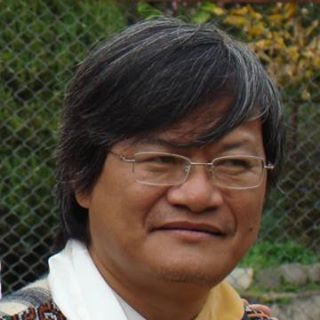Future Generations University Alumni
 TIEN NGO NGUYEN, CLASS OF 2007
TIEN NGO NGUYEN, CLASS OF 2007
Practicum Summary: Using Intercultural Communicative Competence Learning Platfom to Increase Student’s Communicative Skills and Intercultural Competence at An Giant University, Vietnam
Ngo Tien Nguyen’s research practicum examines a new methodology to develop communicative skills and intercultural communicative competence for English students at An Giant University in Vietnam by employing more intercultural-based materials and activities. At the university level, English acquisition in Vietnam relied heavily on Western-cultural based textbooks for many years. These learning texts do not reflect the culture of nonnative English speakers, resulting in strong communication skills via the English language, but a lack of intercultural competence that prevents students from being successful global citizens. In order to improve intercultural competence, Eastern Mennonite University and An Giant University created the Intercultural Communicative Competence Platform (IC3) designed to provide a new learning experience for English students. To test the effectiveness of the learning material on language learning so that it is improved for the benefit of the student, an action research experiment was undertaken. Using data collected from students’ tests, questionnaires, and interviews, students were analyzed to find how intercultural competent they were in terms of motivation, knowledge, attitude, and confidence. Although the students observed from the experimental class showed growing improvement in basic language skills and intercultural competence, results were not as high as expected, partially due to a lack of indicators to measure intercultural competency. Nguyen recommends improving IC3 material with more diversified activities and updated information related to intercultural competency.
 QUANG DANG NGOC, CLASS OF 2007
QUANG DANG NGOC, CLASS OF 2007
Practicum Summary: Impact of Group-Based Micro-Credit Service on Women’s Empowerment
Dang Ngoc Quang’s research practicum recounts the impact of a microcredit program operated by the Rural Development Services Center *RDSC) in rural communities of the PhuTho province. RDSC is a Vietnamese nongovernmental organization that designed a microcredit program when microfinancing became known as a means of economic empowerment in communities in 1996. After a 3-year pilot program, the program was transferred to local women for self-management. Between 1996 and September 2007, the program experienced enormous success and was replicated in 15 other communes in 3 provinces of Vietnam. In addition, the program was modified for implementation in 5 other communities throughout 2 provinces. The program demonstrated success, supported by the program’s ability to replicate in other areas of the country. Quang explores the reasons behind the program’s success, which is most often attributed to increased empowerment for women, who are also in charge of the program. This study attempts to quantify the program’s impact on empowerment using three indicators: power in decision-making, relative status to men, and violence or abuse. Women in villages where the experimental microcredit programs took place proved to endure less violence and gain more respect from their spouses and the community after increasing food availability, quality of food, and overall wealth.

